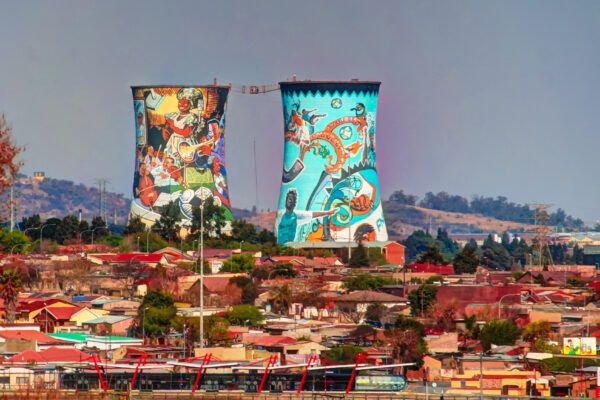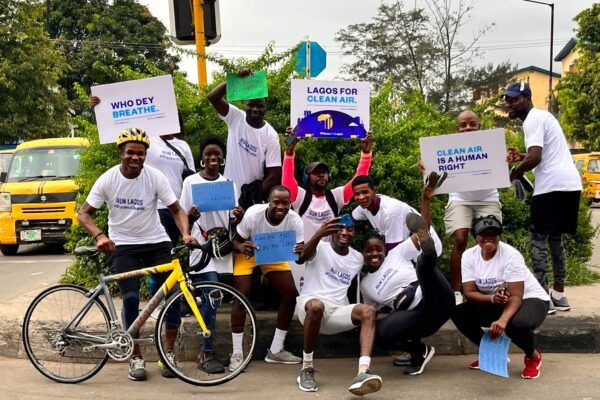The problem
The WHO estimates that nine out of ten people worldwide breathe polluted air, with the poorest and most vulnerable people bearing the brunt of the burden in terms of mortality and ill health. More countries are measuring and taking action to reduce air pollution, but there is little to no data on air quality in most African countries.
African cities are rapidly urbanising, but have inadequate measurement tools for air quality. Current methods of measuring air pollution are expensive and difficult to implement at scale. There is a gap between evidence on dirty air and advocacy, coupled with unresponsive governance in fast growing cities. Africa’s young population have largely untapped potential to drive sustainable development, but don’t have accessible opportunities to engage in local clean air action.
The solution
To leverage young residents’ potential to advocate for smarter cities, UrbanBetter ran Cityzens4CleanAir (C4CA), a youth-led citizen science initiative. C4CA equipped youth activists with low-cost wearable sensors to gather data and content to raise awareness of air pollution in major cities in South Africa, Nigeria and Ghana.
Youth citizen scientists were recruited and trained in Cape Town, Lagos and Accra. They co-designed running routes and engaged hundreds of their peers to join group runs around their cities. The runners were equipped with wearable air quality sensors and a bespoke app to capture multimedia data on the sources of air pollution they encountered while running. #Cityzens4CleanAir social media campaigns supported the run in the three cities.
Informed by the data stories they generated, the citizen scientists were trained in advocacy and developed policy calls for decision makers. They also ran advocacy campaigns in the run up to and during COP27, reaching almost two million people. UrbanBetter also developed a Cityzens data platform to demonstrate that sensors and multimedia data can be effectively integrated and used to inform policy and advocacy.
The impact
Using running as advocacy and youth-led citizen science, C4CA highlighted the potential of lower-cost, decentralised air quality measurement, the transformative power of citizens with access to air quality data and the potential to leverage youth engagement for urban decision making in cities. C4CA’s impacts include:
- Unearthing inequity in air quality and inadequacy of measurement: PM2.5 levels varied greatly among and within the three cities (none of which have adequate air quality measurement).
- Demonstrating that improving air quality data access increases public engagement: 2 million people reached through social media and press coverage.
- Engaging over 300 young runners: Young people are motivated and eager to support clean air action in their neighbourhoods. The Cityzens4CleanAir runners reported that they felt empowered by the ability to actively monitor and access air quality data themselves.
The initiative also led to successful partnerships with governments. In Cape Town, South Africa, C4CA partnered with the National Department of Science and Innovation as part of the World Science Forum hosted by the South African government. The partnership comprised two C4CA runs measuring air quality to show that air pollution is a social justice issue. Results from the running campaign were presented by one of the youth citizen scientists in the closing plenary of the global event. Discussions are ongoing to explore how wearable sensors and citizen science could be scaled up in South African high schools.
In Lagos, Nigeria, Africa’s largest city of over 25 million people, UrbanBetter is partnering with the Lagos State government on a follow-on project deploying 30 low cost sensors and mobilising youth citizen scientists to generate complementary air quality and built environment data. This project aims to integrate citizen scientists into the air quality management system in Lagos, as well as other cities in East, Central and West Africa.

